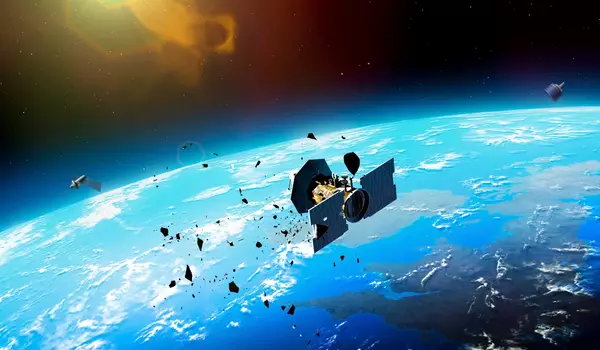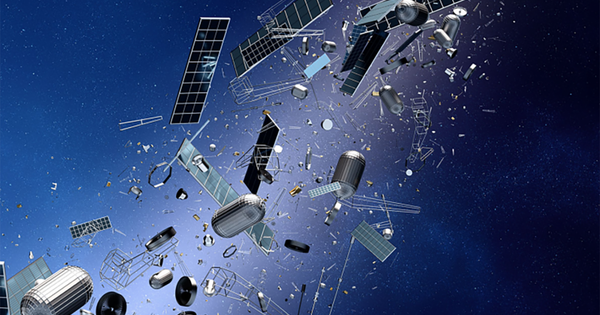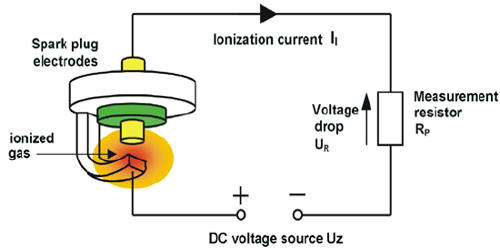Space junk, also known as space debris, is a growing problem in orbit around the Earth. It consists of man-made objects, such as old satellites and rocket parts, that no longer serve any purpose but continue to orbit the Earth, posing a risk to active satellites and spacecraft.
Scientists have called for a legally binding treaty to ensure that the future expansion of the global space industry does not irreparably harm Earth’s orbit. After nearly 200 countries agreed to a treaty to protect the High Seas after a 20-year process, experts believe society must apply what it has learned in one part of the world to another.
The number of satellites in orbit is expected to grow from 9,000 today to more than 60,000 by 2030, with estimates indicating that more than 100 trillion untracked pieces of old satellites are already circling the planet. While such technology is used to provide a wide range of social and environmental benefits, there are concerns that the industry’s predicted growth will render large portions of Earth’s orbit unusable.
An international collaboration of experts in fields such as satellite technology and ocean plastic pollution wrote in the journal Science that this demonstrates the urgent need for global consensus on how to best govern Earth’s orbit.
They acknowledge that a number of industries and countries are starting to focus on satellite sustainability, but say this should be enforced to include any nation with plans to use Earth’s orbit.
The issue of plastic pollution, as well as many of the other challenges confronting our ocean, is gaining global attention. However, collaborative action has been limited, and implementation has been slow. With the accumulation of space debris, we are now in a similar situation.
Dr. Imogen Napper
They add that any agreement should include measures to implement producer and user responsibility for satellites and debris beginning with launch. When considering ways to incentivize accountability, commercial costs should also be considered. These considerations align with current proposals to address ocean plastic pollution as countries begin negotiations for the Global Plastics Treaty.
Experts also believe that unless immediate action is taken, large areas of our planet’s immediate surroundings will suffer the same fate as the High Seas, where poor governance has resulted in overfishing, habitat destruction, deep-sea mining exploration, and plastic pollution.
The article was co-authored by researchers from the University of Plymouth, Arribada Initiative, The University of Texas at Austin, California Institute of Technology, NASA Jet Propulsion Laboratory, Spaceport Cornwall, and ZSL (Zoological Society of London).
They include the academic who led the first-ever study into marine microplastics, also published in Science almost 20 years ago, and scientists who contributed to the commitment to develop a Global Plastics Treaty signed by 170 world leaders at the United Nations Environment Assembly in March 2022.

The study was led by Dr. Imogen Napper, a Research Fellow at the University of Plymouth, and was funded by the National Geographical Society. She stated: “The issue of plastic pollution, as well as many of the other challenges confronting our ocean, is gaining global attention. However, collaborative action has been limited, and implementation has been slow. With the accumulation of space debris, we are now in a similar situation. Taking what we’ve learned from the high seas into account, we can avoid repeating the same mistakes and work together to prevent a tragedy of the commons in space. Without a global agreement, we may end up on a similar path.”
Heather Koldewey, ZSL’s Senior Marine Technical Advisor, said: “To tackle planetary problems, we need to bring together scientists from across disciplines to identify and accelerate solutions. As a marine biologist I never imagined writing a paper on space, but through this collaborative research identified so many parallels with the challenges of tackling environmental issues in the ocean. We just need to get better at the uptake of science into management and policy.”
Dr. Moriba Jah, Associate Professor of Aerospace Engineering and Engineering Mechanics at The University of Texas at Austin, said: “Ancient TEK (traditional ecological knowledge) informs us how we must embrace stewardship because our lives depend on it. I’m excited to work with others in highlighting the links and interconnectedness amongst all things and that marine debris and space debris are both an anthropogenic detriment that is avoidable.”
“Mirroring the new UN ocean initiative, minimizing the pollution of lower Earth orbit will allow continued space exploration, satellite continuity, and the growth of life-changing space technology,” said Dr Kimberley Miner of NASA’s Jet Propulsion Laboratory.
Melissa Quinn, the Director of Spaceport Cornwall, stated: “Satellites are critical to the well-being of our people, economies, security, and the planet itself. However, using space to benefit people and the planet is in jeopardy. By comparing how we have treated our seas, we can be proactive before we endanger future generations’ use of space. Humanity must accept responsibility for our actions in space now, not later. I encourage all leaders to take note, to recognise the significance of this next step and to become jointly accountable.”
Professor Richard Thompson OBE, Head of the University of Plymouth’s International Marine Litter Research Unit, stated: “I’ve spent the majority of my career studying the accumulation of plastic litter in the marine environment, as well as the harm it can cause and potential solutions. Much of the pollution we see today could easily have been avoided. We were well aware of the problem of plastic pollution a decade ago, and if we had acted then, the amount of plastic in our oceans could have been half of what it is now. Going forward, we must be much more proactive in order to help protect our planet’s future. There is much that can be learned from mistakes made in our oceans that is relevance to the accumulation of debris in space.”
















